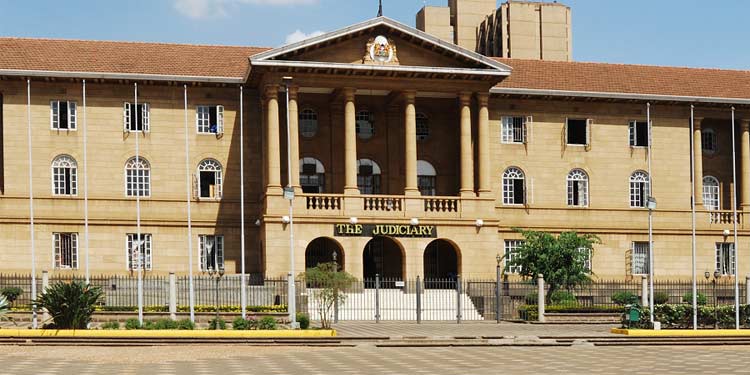The Court of Appeal will on March 21, rule whether it will suspend the High Court judgement that declared the Azimio la Umoja One Kenya alliance as the bonafide majority alliance in the National Assembly.
The Speaker of the National Assembly, Moses Wetangula wants the three-judge bench to temporarily suspend the judgment that overturned his decision that declared Kenya Kwanza coalition led by President William Ruto as the majority party on October 6, 2022 pending hearing and determination of the appeal.
Wetangula through his lawyer Elisha Ongoya, argued that the ruling has confused Parliament, disrupting its ability to function effectively.
Wetangula criticized the High Court for what he terms a grave error in overturning his ruling on party majority and minority without properly analyzing the evidence.
Ongoya argued before lady Justice Mumbi Ngugi, Justice Daniel Musinga and Justice Francis Tuiyott that post-election coalitions can alter the Independent Electoral and Boundaries Commission’s (IEBC) declaration at the conclusion of an election.
He claimed that the Speaker had to consider post-election coalitions when making his ruling.
“The court ignored the fact that by law, a party to a coalition can move out and retain its independence,” said Ongoya.
“This is a phenomenon known to our law, and it alters the declaration of the IEBC at the conclusion of an election.”
The dispute, he stated, revolves around four political parties.
The court was informed that the Azimio coalition agreement does not bear the signatures of UDM and MDG officials, raising questions about their formal inclusion in the coalition.
Additionally, Ongoya accused the High Court of misinterpreting the law regarding the Speaker’s role.
“The High Court judges made a finding that the Speaker is not a Member of Parliament despite Article 97(1)(d) of the Constitution,” said Ongoya.
They also claimed that the judges misapplied Article 117, which provides immunity and privileges to the Speaker in parliamentary decisions.
“The judges overlooked the protection the speaker enjoys in making his decision, If the appeal succeeds it will be rendered nugatory. The decision will have serious effects on the happenings in parliament. Public interest will be tainted. The profile of the speaker is already in question.”
Ongoya further urged the court to take note of a pending contempt of court application, warning that the Speaker risks imprisonment if the decision is not stayed.
“If the Speaker is taken to the dock, the embarrassment cannot be undone,” he argued.
Azimio la Umoja coalition however, opposed the application arguing that the High Court had already settled the matter of parliamentary majority and minority status in its ruling on February 7.
Through their lawyer Kibe Mungai, they stated that the Speaker’s decision on October 6, 2022, which declared Kenya Kwanza as the majority, was made without jurisdiction and contradicted the official results determined by the Independent Electoral and Boundaries Commission (IEBC) and the Registrar of Political Parties.
Kibe argued that on the same day the High Court ruling was issued, Deputy Speaker Gladys Sholei wrote to the Registrar of Political Parties to seek confirmation on the political parties represented in Parliament and their coalition affiliation.
The Speaker, however, continued to declare Kenya Kwanza as the majority based on new evidence obtained after the judgment, despite no court order confirming such a decision.
Kibe said that there is disobedience of the court and if the court grants the orders the appellant are seeking judicial immunity.
“It is not a legitimate application,” Kibe Mungai argued.
The Court of Appeal was told that the lower court orders invalidated the Speaker’s decision, therefore the majority must assume office.
Kibe said that the Speaker of National Assembly is the one causing the said confusion in parliament saying that the application is an abuse of court proceedings.
He argued that Wetangula’s actions constituted a “legislative judgment,” which was unlawful, null, and void, as it ignored the High Court’s judgment and was in contempt of the court’s orders.
Kibe urged the court to dismiss the application, arguing that the Speaker’s actions could not be justified under any circumstances.
The Law Society of Kenya (LSK) on their part argued that denying the stay would not render the appeal nugatory.
LSK claimed that that any inconvenience caused by compliance with the court’s judgment should not override the necessity of upholding the Constitution and ensuring that Kenyans enjoy the rightful fruits of the judgment.
“The Court should not be used as a back door to cater for the personal interest of individuals. The trial court made the decision for the sake of upholding the principle of the constitution and to give Kenyans their rightful fruits of the judgement,” LSK argued.
Email your news TIPS to Editor@Kahawatungu.com — this is our only official communication channel


